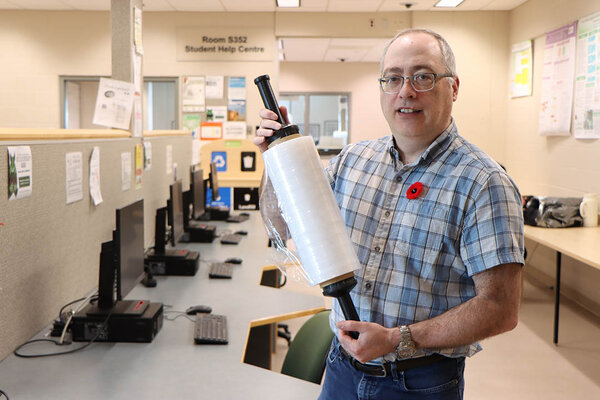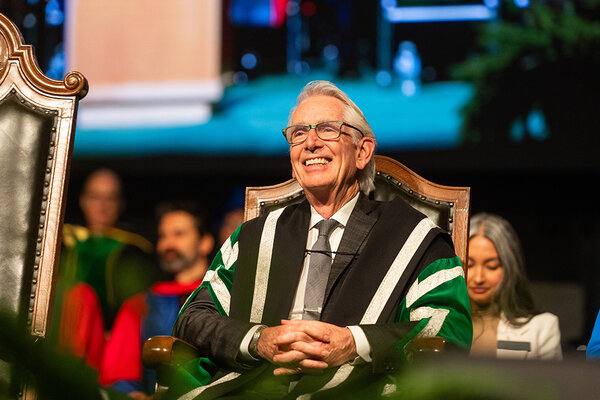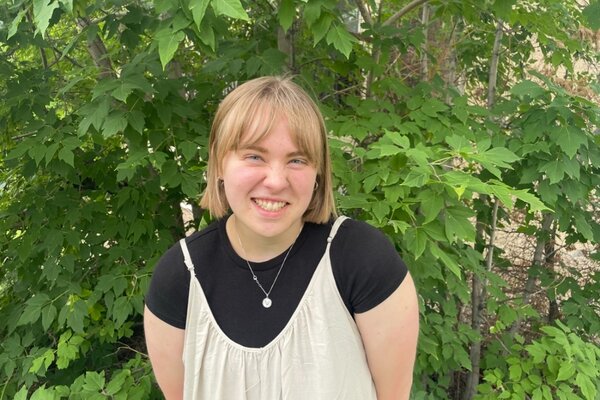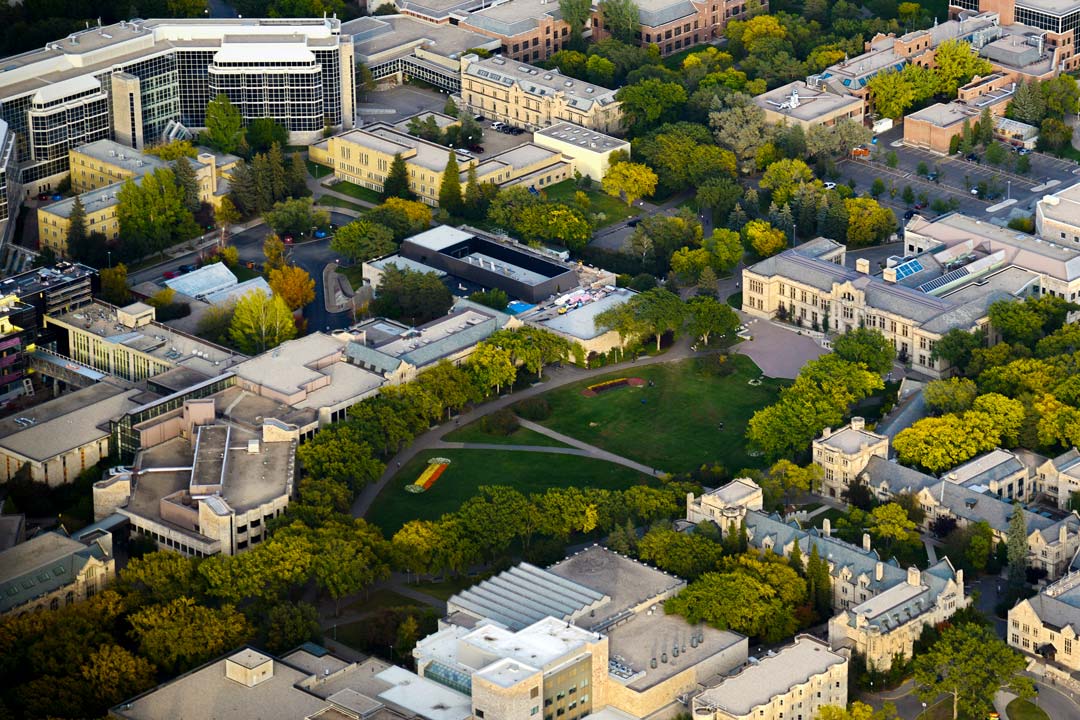
College of Arts and Science welcomes new faculty members in 2024
Fourteen scholars from around the world join the college
From the impact of wildfire smoke on songbirds to the coping strategies of elite singers to methods of training smarter AI systems, a new group of faculty members joining the College of Arts and Science at the University of Saskatchewan (USask) will push the boundaries of knowledge.
Fourteen lecturers, assistant professors and professors are new to the college this fall. They have accepted positions in the School for the Arts, Department of Biology, Department of Computer Science, Department of Economics, Department of Psychology and Health Studies, and Department of Sociology.
Six of the incoming scholars are appointed to the School for the Arts, a new academic unit in the College of Arts and Science launched this summer that unites faculty members of the former departments of art and art history, music, and drama.
Read brief biographies of the new faculty members below.
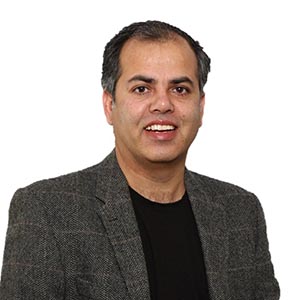
Mumtaz Ahmad
Lecturer, Department of Economics
Dr. Mumtaz Ahmad (PhD) obtained a Master of Arts in economics in 2013 from Memorial University and a PhD in economics from Carleton University in 2021. His work explores the links between aggregate profits, trade agreements, import tariffs and income inequality from an empirical perspective. Prior to joining USask, he was an instructor at Carleton University, Toronto Metropolitan University and Wilfrid Laurier University, where he taught microeconomics, econometrics and international monetary economics courses.
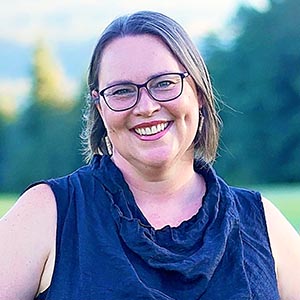
Betty Allison
Assistant Professor, School for the Arts
Teaching artist and soprano Dr. Betty Allison (DMA) is a new professor of voice at USask. A graduate of the Canadian Opera Company Ensemble, she has been performing a versatile classical repertoire for almost 20 years. In addition to her teaching and performing, Allison’s research focuses on the connection between a singer’s voice and their overall wellness and resilience: specifically, the non-musical stressors and coping strategies that elite singers use to maintain their voices and careers.
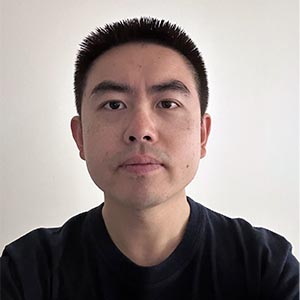
Alex Bing
Lecturer, Department of Sociology
Dr. Alex Bing (PhD) obtained his doctorate in sociology in 2021 after completing a thesis on the childhoods, school lives and worldviews of immigrant engineering students. He also has a Master of Arts in education, which he obtained in 2015 from researching the history of the science-art divide in Ontario. Alex has a lifelong passion for teaching and learning; he is excited to meet and engage the undergraduate student community at USask in the coming terms.
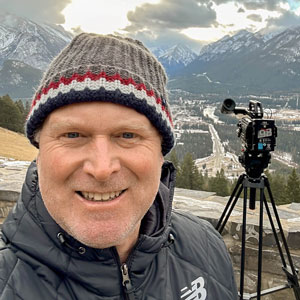
Andrew Denton
Director and Professor, School for the Arts
Dr. Andrew Denton (PhD) is the inaugural director of the newly established School for the Arts. He came to USask from New Zealand’s Auckland University of Technology, where he was an associate professor and served terms as a program leader, department head, and associate head of the School of Art and Design. A multimedia artist, Denton’s research engages with climate and geological change through cinematic affective devices, video and photographic media.
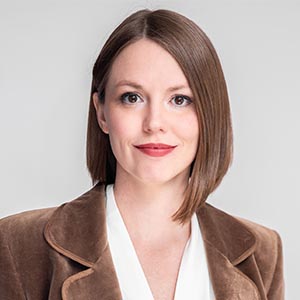
Thea Fitz-James
Assistant Professor, School for the Arts
Dr. Thea Fitz-James (PhD) teaches theatre history, acting and directing. Her research looks at the material body in contemporary performance with a focus on gendered femme or queer bodies and grassroots or community-driven Canadian stages, specifically Canadian Fringe Festivals. Thea is a feminist performance artist with a solo theatre practice; she holds a PhD in theatre and performance studies from York University, has over 15 years' experience in arts administration, and delights when theory and practice rub shoulders in the classroom and the rehearsal room.
300jpg
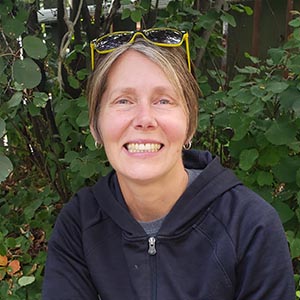
Malin Hansen
Lecturer, Department of Biology
Dr. Malin Hansen (PhD) earned her doctorate in plant ecology at the University of Regina. Her research focused on introduced grasses which threaten the native grassland ecosystem in Southern Saskatchewan. After finishing her PhD, Hansen found her passion for teaching and learning and embarked on a post-doctoral research project in science education at the University of British Columbia. Since then, she has been teaching biology at universities and colleges in Saskatchewan, B.C. and Alberta. Hansen believes in an inclusive and learner-centred teaching approach that emphasizes the importance of deep learning and higher-level thinking over memorization.
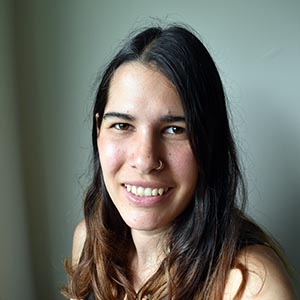
Catherine Ivy
Assistant Professor, Department of Biology
Dr. Catherine Ivy (PhD) is a comparative animal physiologist interested in how organisms breathe and sense oxygen in their environment. She received her PhD at McMaster University, where she studied adaptations in breathing in high-altitude animals and held an NSERC Banting Postdoctoral Fellowship at Western University studying migratory flight in songbirds. Her research group at USask will investigate how wildfire smoke influences migratory flight in songbirds, in addition to oxygen sensing in invertebrates.
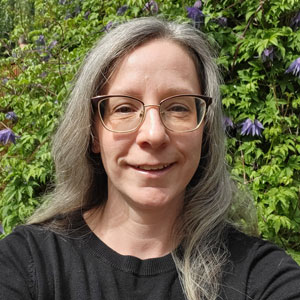
Kristy Kowatch
Assistant Professor, Department of Psychology and Health Studies
Kristy Kowatch is a doctoral candidate in clinical psychology at Lakehead University. Her research and clinical work are focused on improving equity in mental health services for underserved children and adolescents. Kowatch has worked with First Nation communities and organizations to integrate cultural models of health and wellbeing in clinical services. Her research empowers communities through the use of community-based participatory methods.
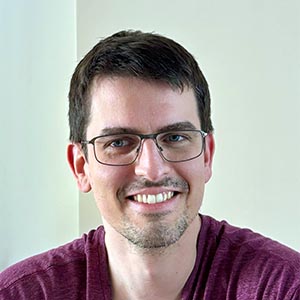
Lucas Lehnert
Assistant Professor, Department of Computer Science
Dr. Lucas Lehnert (PhD) specializes in artificial intelligence. He believes that gaining a deeper understanding of intelligence is essential for responsibly shaping the future of AI technologies and their impact on society. Lehnert’s research uses reinforcement learning techniques to improve how intelligent systems combine and generalize information across tasks. He completed his post-doctoral research at Meta’s FAIR team and the Mila Quebec AI institute. His doctoral work at Brown University has been recognized with, among other awards, an NIMH training grant in cognitive neuroscience.
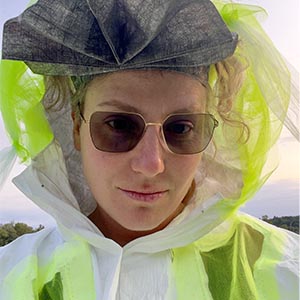
Ella Dawn McGeough
Assistant Professor, School for the Arts
Dr. Ella Dawn McGeough (PhD) is an artist who negotiates sticky sites of affection and infection, influence and inheritance, obligation and commitment, encounter and entanglement, dreaming and waking, inside and outside, you and me, us and we. McGeough completed their SSHRC-funded PhD at York University for research-creation drawing upon the vast potential of beds, human and otherwise. They were raised on the unceded territories of the Kwantlen|qʼʷa:n̓ƛʼən̓, Katzie|q̓ic̓əy̓, Semiahmoo|SEMYOME, and Tsawwassen|sc̓əwaθən məsteyəxʷ Nations and spent the last decade in T'karonto (Toronto) before moving to Saskatoon.
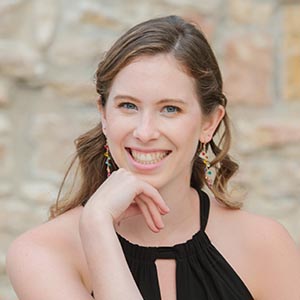
Kayla Solomon
Assistant Professor, School for the Arts
Dr. Kayla Solomon (DMA) is an international trumpet performer and educator with a diverse background in various musical genres. Her research bridges athletics and music, aiming to create positive environments that help musicians perform at their best. She is thrilled to join the School for the Arts at USask, where she looks forward to teaching students about injury prevention and collaborating across disciplines. Outside of music, Solomon loves travelling, meeting new people and experiencing different cultures.
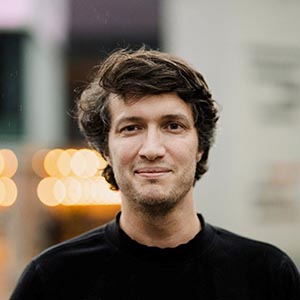
Fraser Stevens
Assistant Professor, School for the Arts
Before coming to USask, Dr. Fraser Stevens (PhD) held a faculty position at Sheffield Hallam University in the United Kingdom. Originally from rural Ontario, he completed his MA at Aberystwyth University in Wales and his PhD at the University of Maryland in the United States. Stevens’ scholarship explores the intersection of theatre and performance with secrecy, subversion and clandestine affairs. He is also a co-artistic director of the theatre company Almost Human, whose work has been presented in Europe, the Middle East and North America and has been shortlisted for numerous creative awards.
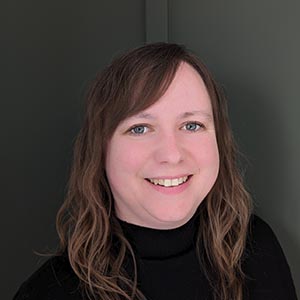
Samantha Wilson
Assistant Professor, Department of Psychology and Health Studies
Dr. Samantha Wilson (PhD) is a registered doctoral psychologist who completed her PhD at Université de Montréal and most recently held a post-doctoral fellowship at McGill University. Her research interests include transdiagnostic processes relevant to eating disorders and co-occurring conditions. She is excited to be a part of the clinical psychology expansion at USask.
300300jpg
300300jpg
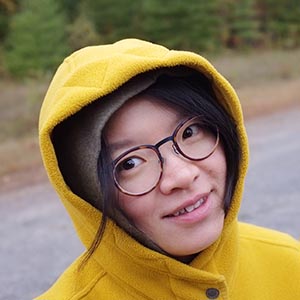
Yikun Zhao
Lecturer, Department of Sociology
Dr. Yikun Zhao (PhD) obtained her doctorate in sociology from York University in 2022, adding to an interdisciplinary background (an MSc in marketing from Concordia University and a BA in English linguistics and literature from Beijing International Studies University). Zhao’s main research and teaching interests are in cultural sociology and sociological theory. Her dissertation adopts an Eliasian configurational approach and combines archival research and ethnography to explore the rise of the etiquette industry and its auxiliaries in post-reform China. She looks forward to working with students and colleagues from the vibrant USask community.
